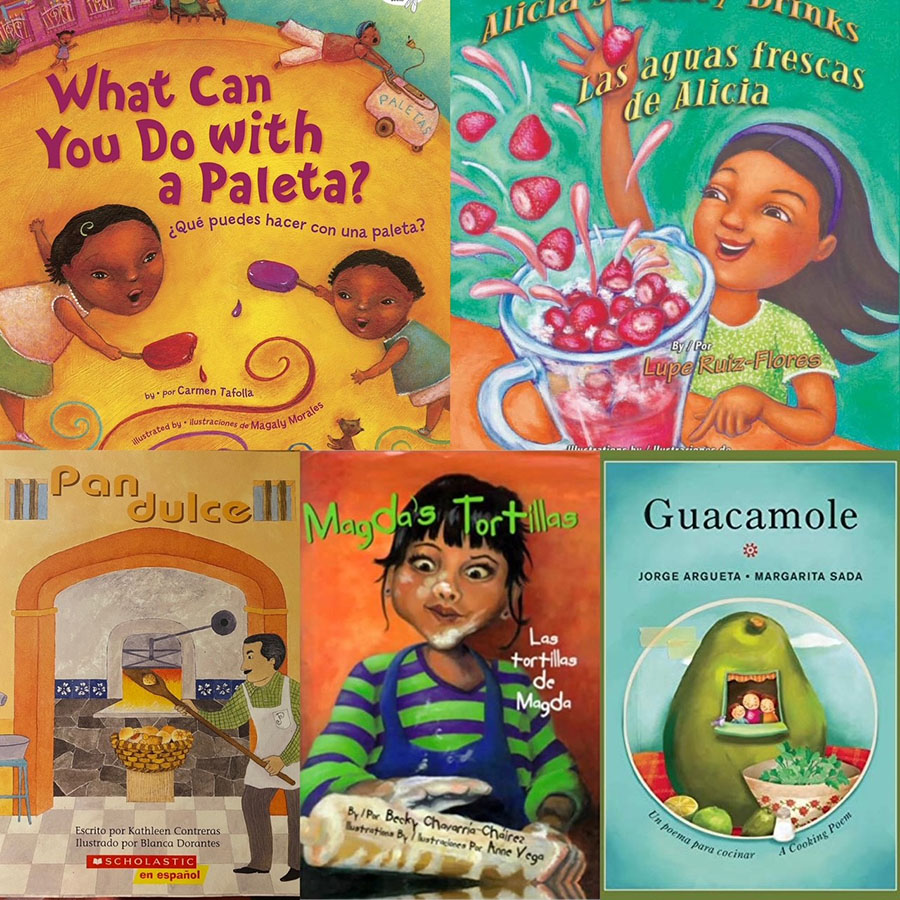 March 24, 2021 — Magda is turning seven years old and wants to learn to make tortillas.
March 24, 2021 — Magda is turning seven years old and wants to learn to make tortillas.
That’s the story told in “Magda’s Tortillas,” one of five bilingual children’s books that are the main course of a virtual learning program that is giving 34 CSU Channel Islands (CSUCI) Early Childhood Studies (ECS) students the chance to get the field teaching experience they need to graduate this May.
Usually, ECS students teach in classrooms during their senior year, but the COVID-19 pandemic made that impossible. So, during fall semester, Assistant Professor Annie White, Ed.D. and ECS Lecturer Lauren Chase worked with CSUCI’s Center for Community Engagement (CCE) to come up with a creative way for seniors to get teaching experience in the field.
“Over the summer CCE had identified community partners that would be the best fit,” White said. “We discussed the need for resources for children who are experiencing social isolation and distance learning.”
The Spring semester program is a continuation of that successful Fall semester program in which ECS students conducted virtual science, technology, engineering, art and math (STEAM) instruction to 50 children in the Cabrillo Economic Development Corporation (CEDC). CEDC provides housing for low income and farmworker families.
For the Spring semester, Chase and Professor and Chair of ECS Mari Riojas-Cortez, Ph.D. developed the “Little Dolphins Virtual Learning Program” for children ages three to eight.
“This whole pandemic has closed many doors but has also opened doors to servicing families in the community and at the same time, our students are learning to work with families,” Riojas-Cortez said.
Beginning at the end of March, the CSUCI students will begin teaching children by visiting the CEDC homes via Zoom. Children are not with peers in a classroom, but with family members, so Riojas-Cortez and Chase had CSUCI students create classes around a topic everybody loves: food.
“A lot of families live in multi-generational homes and anytime you have food, everybody comes together,” Riojas-Cortez said. “When it’s face to face, you get a really big buy-in from families and the most important thing here was to make a connection with the families.”
Besides “Magda’s Tortillas,” The Little Dolphins Virtual Learning Program is based on five bilingual books about food including “Guacamole,” “What Can You Do With a Paleta,” “Alicia’s Fruity Drinks,” and “Pan Dulce.”
“There are a lot of different concepts children can learn through food,” Riojas-Cortez said. “Math, because they have to measure, science because of the makeup of the ingredients, socialization because of the interaction necessary to make the dish, and there is a cultural component because it is traditional food. They will write in their journal about their experience and practice drawing and writing.”
CSUCI student teachers break into groups of four or five and each group works together to come up with a lesson plan for the five week “Little Dolphins” session. It will involve music, poetry and guiding children through the process of making the dish featured in each book.
“Once they become teachers, they will need to learn to work with other teachers,” said Chase, who teaches the class. “They work together and share ideas and learn to interact positively with one another.”
Antonio Juarez of the CEDC said the program allows families to learn and create memories.
“The pandemic made it difficult to provide a positive, creative outlet for all the children of the CEDC,” Juarez said. “Many of the students were becoming Zoom-fatigued, but with Little Dolphins Virtual Learning they will be interacting and creating items they are familiar with and will be able to taste them!”
Class of 2021 ECS major Kenya Alvarez has met the children and families she will be student teaching and is eager to start the lesson plans her team developed.
“This experience is exciting, but can also feel overwhelming,” Alvarez said. “This is new to me and teaching virtually is intimidating. But I am very appreciative of the support we’re getting from Cabrillo Economic Development and our professors to help us.”
Class of 2021 ECS major Shannon Warnshuis felt the same way before she started the Fall program with children in CEDC housing, but it all went very smoothly.
“In the beginning of the semester, I did not understand how we would do these activities without being able to see the children in person,” Warnshuis said. “Not only did we adapt to make this virtual experience, but I believe we excelled.”
